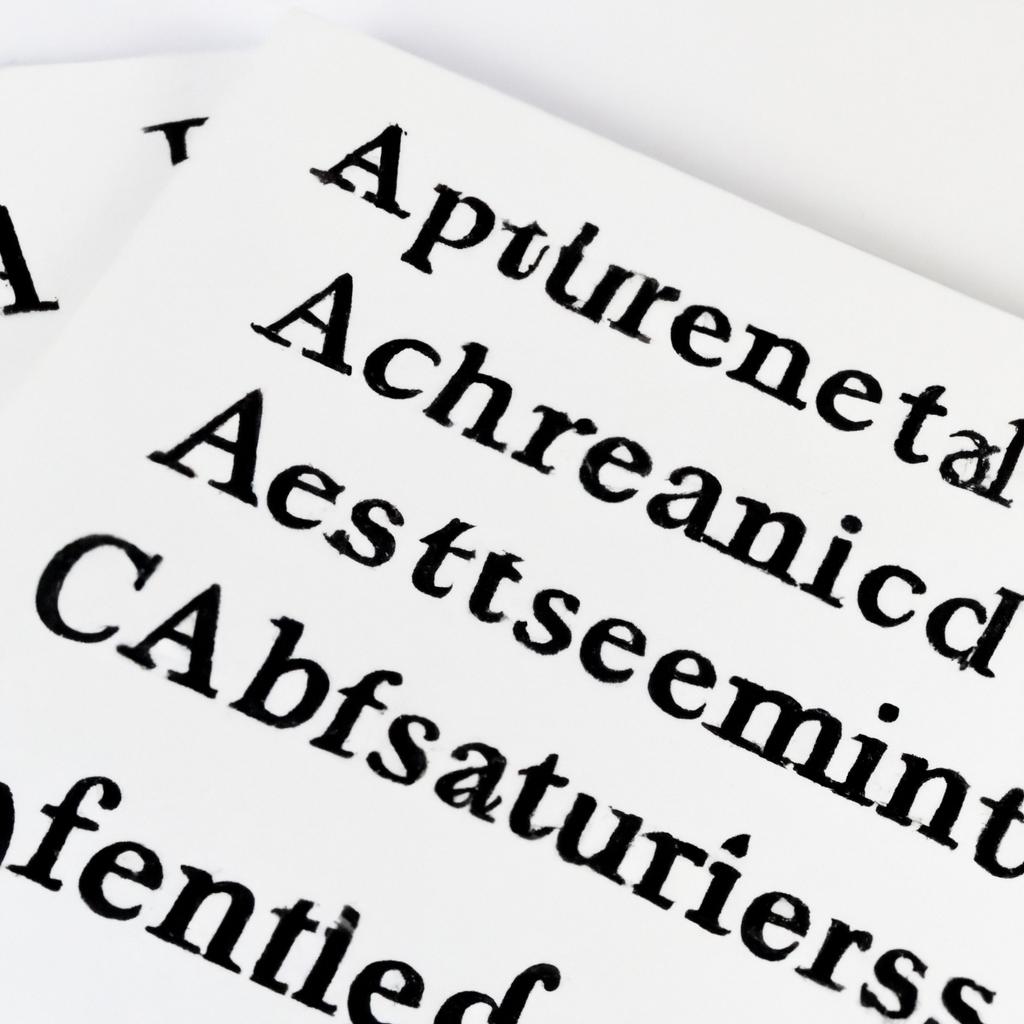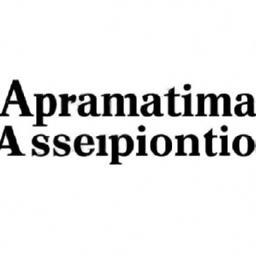When a loved one passes away without leaving a will, navigating the complex legal process of administering their estate can be a daunting and overwhelming task. At Morgan Legal Group in New York City, our team of experienced lawyers specializes in helping individuals apply for letters of administration to effectively manage their loved one’s assets and debts. In this article, we will explore the steps involved in the application process and provide guidance on how to ensure a smooth and successful outcome.
Understanding the Process of Applying for Letters of Administration
When it comes to applying for letters of administration, it’s crucial to understand the process and what is required of you. This legal document grants the authority to administer the estate of a deceased individual who didn’t leave a will or appointed an executor. Below, we outline the steps you need to take to successfully apply for letters of administration:
- File a Petition: The first step is to file a petition with the Surrogate’s Court in the county where the deceased resided. This petition should include details about the deceased, such as their name, date of death, and a list of known heirs.
- Notification of Interested Parties: Next, you must notify all interested parties, including heirs and creditors, about your petition for letters of administration. This can typically be done through formal legal notices or mailings.
- Attend a Hearing: Once the petition is filed, a hearing will be scheduled where the Surrogate’s Court will review your petition and any objections from interested parties. If everything is in order, the court will grant you letters of administration.

Key Factors to Consider Before Applying for Letters of Administration
When considering applying for letters of administration, there are several key factors that individuals should carefully evaluate. Firstly, it is crucial to assess the complexity of the deceased person’s estate. This includes determining the value of assets, debts, and any potential disputes among beneficiaries. Understanding the intricacies of the estate will help in ensuring a smooth administration process.
Secondly, individuals should take into account their relationship with the deceased person. Being a close family member or relative may strengthen your case for being appointed as the administrator of the estate. Additionally, it is important to consider any potential conflicts of interest that may arise during the administration process. By carefully evaluating these factors, individuals can make informed decisions when applying for letters of administration.

Navigating the Legal Requirements for Obtaining Letters of Administration
When it comes to applying for letters of administration, it is crucial to navigate the legal requirements with precision and care. As an experienced attorney, I have helped countless clients successfully obtain these important documents to administer an estate smoothly and efficiently. Here are some key factors to consider when going through this process:
- Proper Documentation: Make sure to gather all necessary documents, such as the death certificate, the original Will (if applicable), and any other relevant paperwork.
- Eligibility: Ensure that you meet the legal requirements to apply for letters of administration, which typically involve being a close relative of the deceased or a designated executor in the absence of a Will.
- Court Process: Understand the steps involved in filing a petition with the probate court, attending a hearing, and obtaining the official Letters of Administration document.
| Document Name | Deadline |
|---|---|
| Death Certificate | Within 30 days of death |
| Original Will | As soon as possible |
| Letters of Administration | After probate court approval |
By following these guidelines and seeking the guidance of a knowledgeable attorney, you can navigate the legal requirements for obtaining letters of administration with confidence and ease. At Morgan Legal Group in New York City, we specialize in estate planning and probate matters, providing personalized assistance to clients in need of expert legal counsel. Contact us today to learn more about how we can assist you in this important process.

Consulting with an Experienced Attorney for Guidance on Applying for Letters of Administration
When it comes to applying for letters of administration, seeking guidance from an experienced attorney is crucial. At Morgan Legal Group, our team of knowledgeable lawyers specializes in estate planning and probate matters, including the process of applying for letters of administration. With our expertise, we can assist you in navigating the complexities of this legal process and ensuring that your application is handled efficiently and effectively.
During a consultation with our attorneys, we will carefully review your specific situation and provide personalized guidance on how to proceed with your application for letters of administration. We will explain the necessary steps involved, assist you in gathering the required documentation, and answer any questions you may have along the way. By enlisting the help of our experienced team, you can have peace of mind knowing that your interests are being protected throughout the application process.
Q&A
Q: What is a letter of administration?
A: A letter of administration is a legal document that grants someone the authority to manage the estate of a deceased person who did not leave a will.
Q: Who can apply for letters of administration?
A: Typically, the next of kin of the deceased person, such as a spouse, child, or parent, can apply for letters of administration. If there are no eligible family members, a close friend or other interested party may also apply.
Q: How do I apply for letters of administration?
A: To apply for letters of administration, you will need to file a petition with the probate court in the jurisdiction where the deceased person lived. You will also need to provide information about the deceased person’s assets, debts, and potential heirs.
Q: What are the responsibilities of someone granted letters of administration?
A: The person granted letters of administration is responsible for managing and distributing the estate of the deceased person in accordance with the law. This includes paying off any debts, locating and valuing assets, and distributing the remaining assets to the heirs.
Q: What happens if someone contests the application for letters of administration?
A: If someone contests the application for letters of administration, a hearing may be held in probate court to determine the validity of the petition. The court will consider the evidence presented by both parties before making a decision.
Key Takeaways
In conclusion, obtaining letters of administration is a necessary step in settling the estate of a deceased loved one. By following the proper procedures and providing the required documentation, you can ensure that the administration of the estate is carried out smoothly and in accordance with the law. Remember, seeking legal guidance and assistance can help simplify the process and alleviate any potential complications. Good luck on your journey towards administering the estate and may the process bring you peace and closure during this difficult time.
 Applying for letters of administration can be a daunting task for many individuals. It involves navigating legal processes, filling out forms, and providing vital documents. However, when someone passes away without leaving a will, letters of administration are necessary for the proper distribution of their estate. In this article, we will explain what letters of administration are, why you may need them, and how to apply for them.
Applying for letters of administration can be a daunting task for many individuals. It involves navigating legal processes, filling out forms, and providing vital documents. However, when someone passes away without leaving a will, letters of administration are necessary for the proper distribution of their estate. In this article, we will explain what letters of administration are, why you may need them, and how to apply for them.
What are Letters of Administration?
Letters of administration are legal documents that grant a person the authority to deal with someone’s estate when they pass away without a will. This person is known as the administrator, and they are responsible for distributing the deceased person’s assets according to the law. The letters of administration act as proof of the administrator’s authority and enable them to legally collect and distribute the assets of the deceased.
Why do You Need Letters of Administration?
Letters of administration are required when someone passes away without a will, which is known as dying intestate. In such cases, the assets of the deceased person cannot be distributed without a legal document proving the administrator’s authority. This is where letters of administration come in. They provide the necessary legal permission to handle the distribution of the deceased person’s estate.
Additionally, letters of administration are crucial for protecting the rights of the beneficiaries. Without these letters, there is no guarantee that the executor will distribute the assets fairly and in accordance with the law. The letters serve as a safeguard to ensure that the estate is divided correctly and that all debts of the deceased are paid off.
How to Apply for Letters of Administration?
The process of applying for letters of administration may vary slightly depending on your jurisdiction, but the following are the general steps that need to be followed:
1. Identify the Legal Next of Kin:
The first step in the process is to establish who the legal next of kin is. This is the person who has the right to apply for letters of administration and distribute the estate. In most cases, the surviving spouse or children are considered the legal next of kin. However, this may differ depending on the laws of your state or country.
2. Gather Necessary Documents:
Before proceeding with the application, you will need to gather certain documents to support your claim. These may include a death certificate, birth certificates of the deceased and the next of kin, marriage certificate (if applicable), and any other relevant documents.
3. Obtain Letters of Authority:
To apply for letters of administration, you will need to obtain letters of authority from the court. This is a document that gives you the legal right to apply for letters of administration. You can obtain these letters by filing a petition with the appropriate court.
4. Complete and File the Required Forms:
You will then need to complete the necessary forms for the application, which can typically be obtained from the court’s website or office. These forms will require basic information about the deceased, the next of kin, and the assets of the estate. They may also require a list of beneficiaries and their relationship to the deceased. Once completed, these forms need to be filed with the court along with the letters of authority.
5. Attend Any Required Court Hearings:
In some cases, the court may require a hearing to determine if the applicant is suitable to be the administrator. If this is the case, it is important to attend these hearings. They may also require additional documentation or information to support your claim.
6. Receive Letters of Administration:
Once the court approves your application, you will receive your letters of administration. These letters serve as proof of your authority and allow you to begin distributing the assets of the estate.
Conclusion
Dealing with the loss of a loved one is never easy, and the process of applying for letters of administration can further add to the stress. However, it is a necessary step in ensuring that the deceased person’s estate is handled and distributed correctly. By following the steps outlined in this article, you can successfully apply for letters of administration and bring closure to the estate distribution process. Remember to consult with a legal professional if you have any questions or concerns about the application process.










